Probiotics for Menopause
Introduction
Menopause marks a significant transition in a woman’s life, often accompanied by a variety of physical and emotional challenges. For those seeking natural solutions to ease menopausal symptoms, the answer may lie in an unexpected place: the gut. Recent studies have highlighted the importance of gut health, and probiotics for menopause have emerged as a powerful ally. In this post, we’ll explore how probiotics can benefit menopausal women, enhancing their well-being during this crucial phase of life.
What are Probiotics?
Definition
Probiotics are live microorganisms, often referred to as “good” or “friendly” bacteria, that provide health benefits when consumed in adequate amounts. They are found naturally in the gut and can also be obtained through certain foods and supplements.
One could also say, that Probiotics are the secret to Gut Health and to Menopause Symptoms Relief!
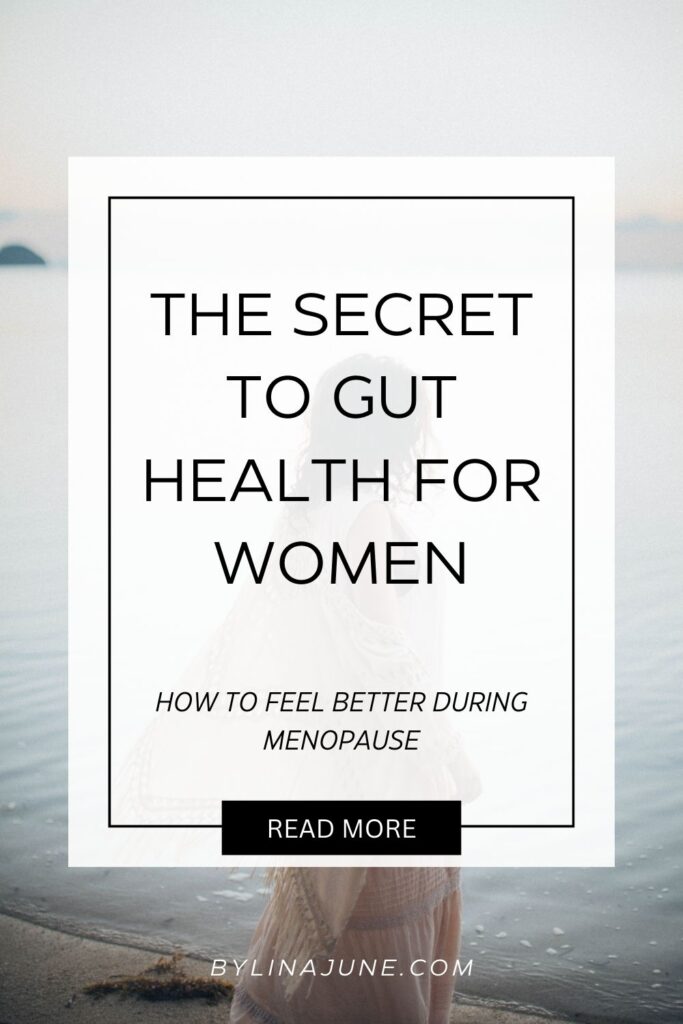
Sources of Probiotics
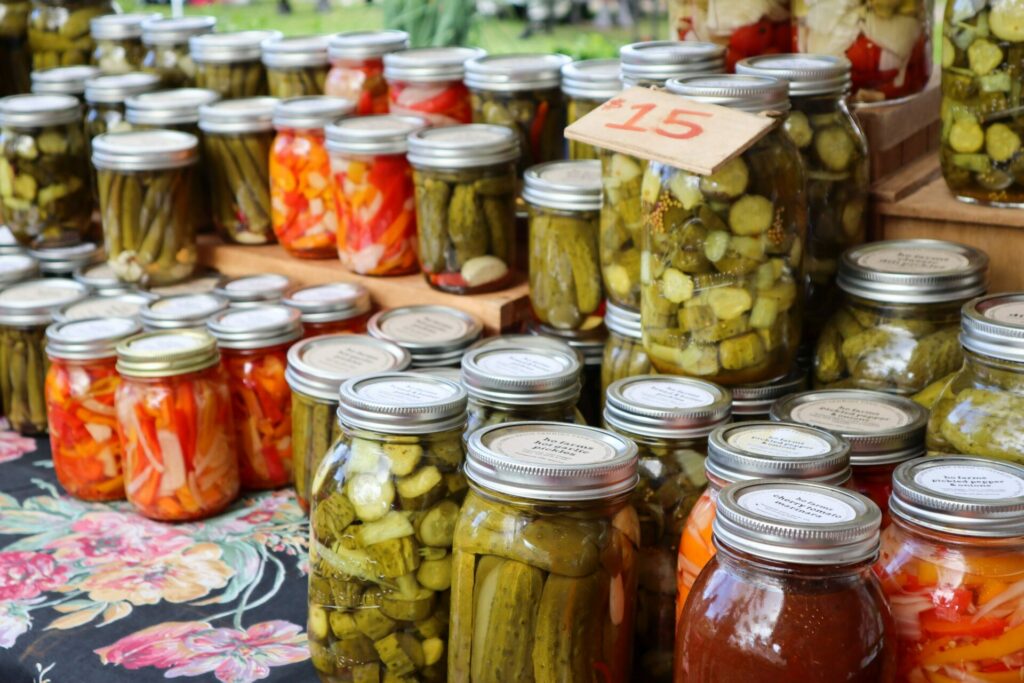
Common probiotic-rich foods include
- yogurt
- kefir
- sauerkraut
- kimchi
- miso
- kombucha
Probiotic supplements are also widely available and can be an effective way to ensure adequate intake.
How They Work
Probiotics help maintain a healthy balance of gut bacteria, which is essential for digestion, nutrient absorption, and immune function. By promoting a balanced gut microbiome, probiotics support overall health and can alleviate various symptoms associated with menopause.
Benefits of Probiotics for Menopausal Women
Improving Digestive Health
Many women experience digestive issues during menopause, such as bloating, constipation, and irritable bowel syndrome (IBS). Probiotics can help alleviate these symptoms by promoting a healthy gut microbiome, enhancing digestion, and improving bowel regularity.
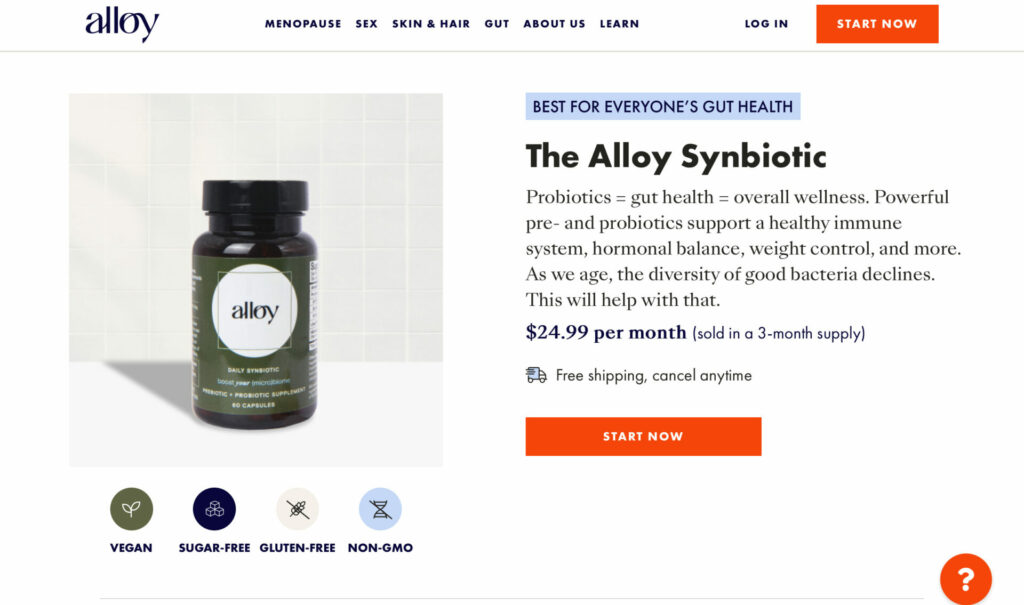
Disclaimer: This post contains affiliate links, which means, as an affiliate, I will receive a commission at no extra cost to you, if you purchase through links on this site.
If it seems to be challenging to include enough probiotics into your daily meals, consider Probiotic Supplements. We can vouch for the one from Alloy. It is especially composed for women in Menopause and therefore the perfect match if you struggle with symptoms of Menopause. (Explore the whole site, or click directly on “Gut” in the top menu bar.)
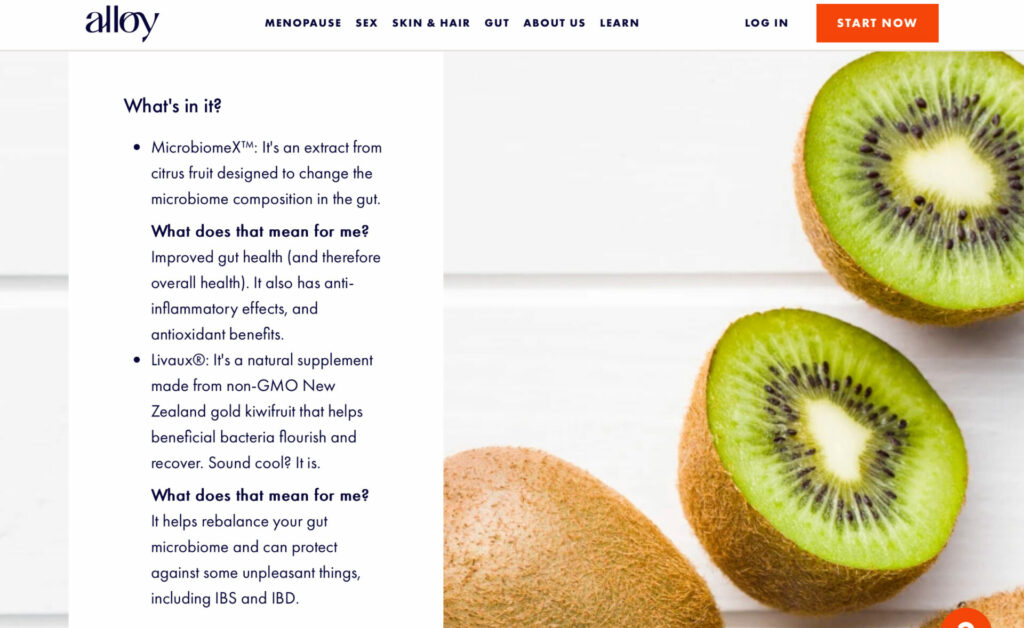
Balancing Hormones
Hormonal imbalances are a hallmark of menopause, leading to symptoms like hot flashes and night sweats. Certain probiotic strains may help modulate hormone levels, potentially reducing the severity of these symptoms and promoting a more balanced hormonal environment.
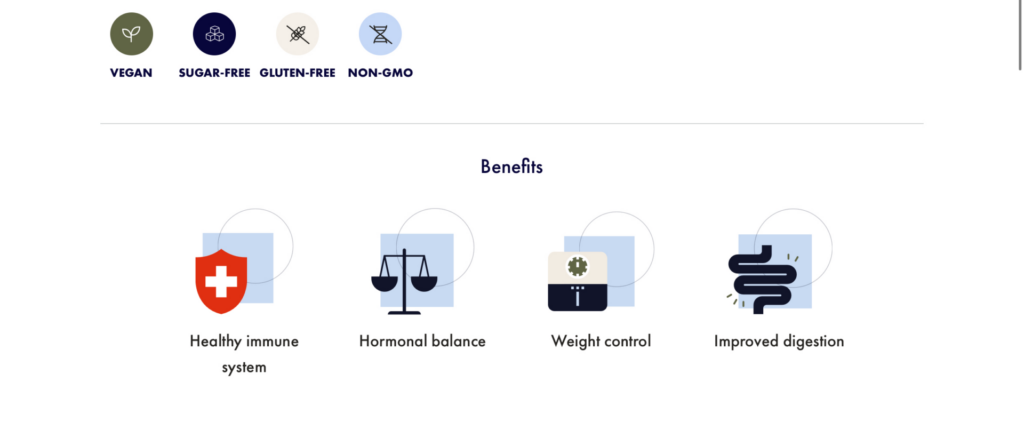
Boosting Immunity
The immune system can be compromised during menopause, making women more susceptible to infections and illnesses. Probiotics support a healthy immune system by stimulating the production of antibodies and enhancing the body’s natural defenses.
Enhancing Mood and Mental Health
The gut-brain connection is a well-documented phenomenon, and gut health can significantly impact mood and mental well-being. Probiotics have been shown to reduce symptoms of anxiety and depression, which are common during menopause, by influencing the production of neurotransmitters and reducing inflammation.
Supporting Weight Management
Weight gain is a common concern during menopause due to hormonal changes and a slower metabolism. Probiotics can aid in weight management by improving metabolism, reducing fat storage, and promoting a feeling of fullness.
Choosing the Right Probiotics
Types of Probiotics

Different probiotic strains offer various benefits. Lactobacillus and Bifidobacterium are two of the most commonly studied strains and are particularly beneficial for digestive health and immune support.
These probiotic strains are found in Kefir and probiotic yogurts, for instance.
Quality Matters
When selecting probiotic supplements, it’s essential to choose high-quality products from reputable brands. Look for supplements with a high CFU (colony-forming unit) count and a variety of strains to ensure broad-spectrum benefits.

There are plenty of reviews from real customers who experienced true relief with products from Alloy. Feel free to have a look at their website – it’s full of science backed information and trusted solutions for menopause symptoms.
Incorporating Probiotics into Your Diet
In addition to supplements, incorporating probiotic-rich foods into your daily diet is an excellent way to boost your intake. Enjoy a serving of yogurt or kefir with breakfast, add sauerkraut to your salads, or sip on kombucha as a refreshing beverage.
Of course there are more foods that are good for you especially during menopause. If you are interested in learning more about them, click here.
This kombucha is one of our favorites. If you can’t find it at your local grocery store or supermarket, click to buy it online and have it delivered to your door
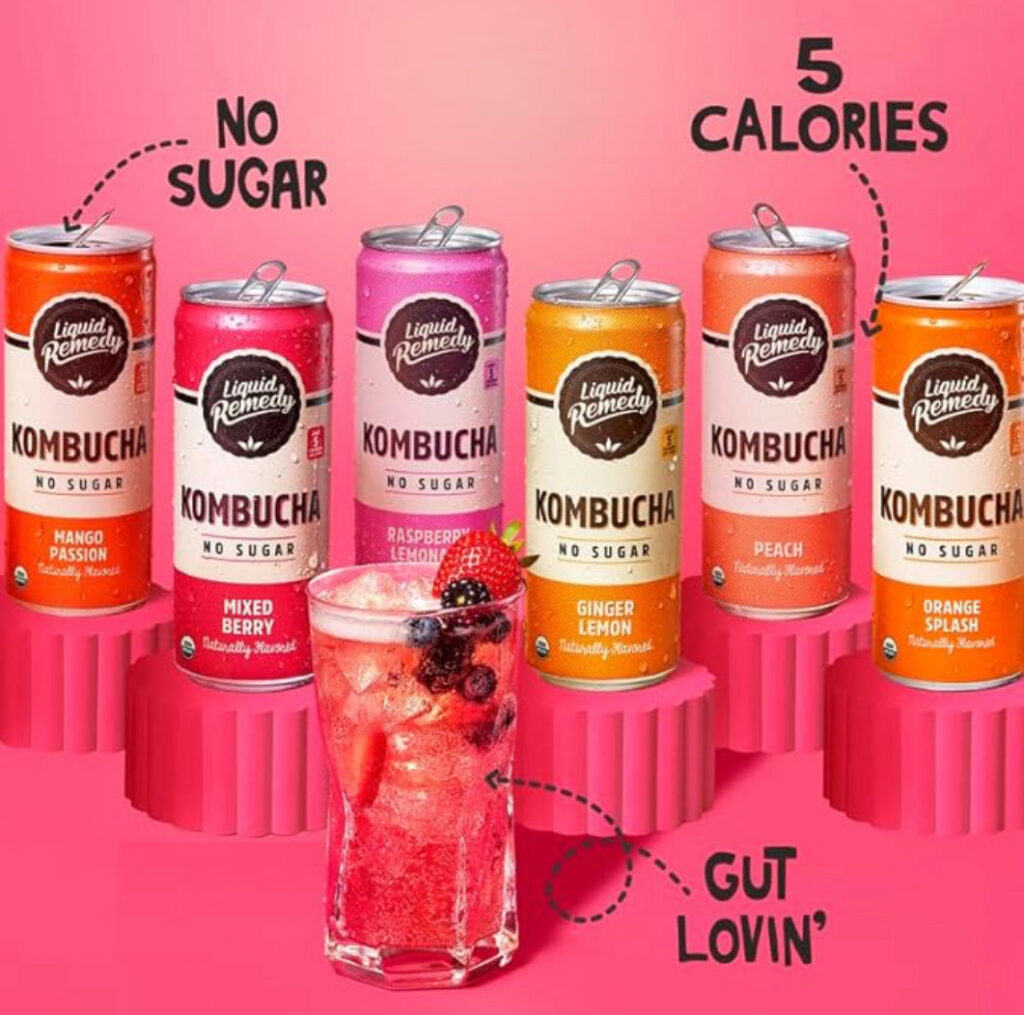
Real Stories and Testimonials
Personal Experiences
Many women have found relief from menopausal symptoms through the use of probiotics. Andrea, a 52-year-old from New York, shares, “Incorporating probiotics into my diet has made a noticeable difference in my digestion and mood. I feel more balanced and energetic.”
Expert Opinions
Healthcare professionals also recognize the benefits of probiotics. “Probiotics are a valuable tool for managing menopausal symptoms. They support gut health, which in turn influences many aspects of overall well-being.”
Potential Side Effects and Precautions
Possible Side Effects
While probiotics are generally safe, some people may experience mild side effects such as gas, bloating, or digestive discomfort. These symptoms typically subside as the body adjusts.
When to Consult a Doctor
Before starting any new supplement regimen, it’s advisable to consult with a healthcare provider, especially if you have underlying health conditions or are taking other medications.
Conclusion
Probiotics offer a natural and effective way to support health and alleviate symptoms during menopause. From improving digestion to enhancing mood and boosting immunity, these friendly bacteria can play a vital role in maintaining well-being during this transitional phase. Consider incorporating probiotics into your diet and experience the benefits for yourself. Have you tried probiotics for menopause? Share your experiences and questions in the comments below!
More about Menopause and Natural Remedies
Read more about symptoms and natural remedies that really help during menopause here.
Privacy Policy | Terms & Conditions | Disclaimer | Cookie Policy


2 thoughts on “Probiotics for Menopause”